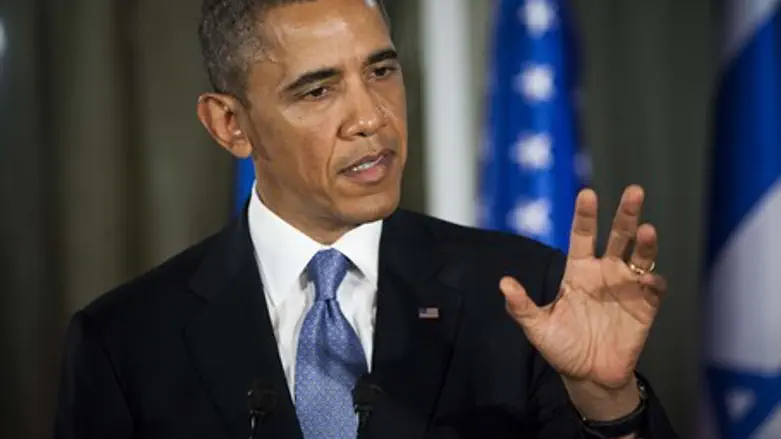
The National Security Agency (NSA) monitored the phone conversations of 35 world leaders after being given the numbers by an official in another U.S. government department, the Guardian reported on Thursday.
The report is based on a classified document provided by whistleblower Edward Snowden. The leaders were not named.
The confidential memo reveals that the NSA encourages senior officials in its "customer" departments, such the White House, State and the Pentagon, to share their "Rolodexes" so the agency can add the phone numbers of leading foreign politicians to their surveillance systems.
The document notes that one unnamed U.S. official handed over 200 numbers, including those of the 35 world leaders, none of whom is named. These were immediately "tasked" for monitoring by the NSA.
The revelation is set to add to mounting diplomatic tensions between the U.S. and its allies, after the German chancellor Angela Merkel on Wednesday accused the U.S. of tapping her mobile phone.
After Merkel's allegations became public, White House press secretary Jay Carney issued a statement that said the U.S. "is not monitoring and will not monitor" the German chancellor's communications. Officials in Berlin quickly pointed, however, out that the U.S. did not deny monitoring the phone in the past.
The NSA memo obtained by the Guardian suggests that such surveillance was not isolated, as the agency routinely monitors the phone numbers of world leaders – and even asks for the assistance of other U.S. officials to do so.
The memo, dated October 2006 and which was issued to staff in the agency's Signals Intelligence Directorate (SID), was titled "Customers Can Help SID Obtain Targetable Phone Numbers".
"In one recent case," the memo notes, "a U.S. official provided NSA with 200 phone numbers to 35 world leaders … Despite the fact that the majority is probably available via open source, the PCs [intelligence production centers] have noted 43 previously unknown phone numbers. These numbers plus several others have been tasked."
The document continues by saying the new phone numbers had helped the agency discover still more new contact details to add to their monitoring.
The Guardian approached the Obama administration for comment on the latest document. Officials declined to respond directly to the new material, instead referring to comments delivered by Carney at Thursday's daily briefing.
Carney told reporters, "The [NSA] revelations have clearly caused tension in our relationships with some countries, and we are dealing with that through diplomatic channels.
"These are very important relations both economically and for our security, and we will work to maintain the closest possible ties," he said.
At the daily briefing on Thursday, Carney again refused to answer repeated questions about whether the U.S. had spied on Merkel's calls in the past.
Earlier this week it was reported that the NSA recorded millions of phone calls in France, including calls involving individuals with no links to terrorism.
The NSA reportedly taped 70.3 million French phone calls in just a little under a month in the period from December 10 last year to January 8, 2013, according to the French Le Monde newspaper.
The U.S. Director of National Intelligence James Clapper later denied the reports.
"Recent articles published in the French newspaper Le Monde contain inaccurate and misleading information regarding US foreign intelligence activities," Clapper said in a statement.
"The allegation that the National Security Agency collected more than 70 million 'recordings of French citizens' telephone data' is false," said the statement. Clapper said he would not discuss details of surveillance activities, but acknowledged "the United States gathers intelligence of the type gathered by all nations".
